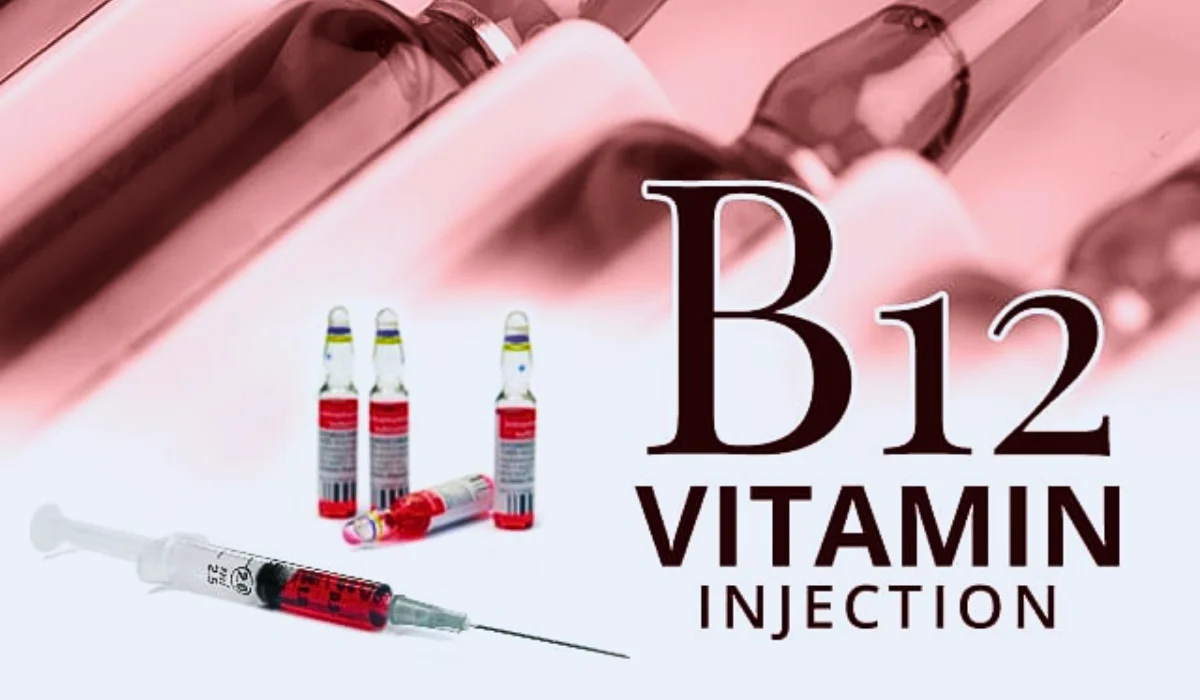With obesity rates rising, many people are looking for quick and easy ways to lose weight. One method that has gained popularity recently is vitamin B12 injections or b12 shots for weight loss. But what does the science say about the effectiveness of b12 shots for weight loss?
Are Vitamin B-12 Injections Helpful For Weight Loss?
Vitamin B12 is an essential nutrient that plays many important roles in the body. It helps make DNA, produce red blood cells, maintain healthy nerve function, and more. Many people get enough B12 from foods like meat, eggs, and dairy products.

However, some claim that getting higher doses of B12 through injections/b12 shots can boost energy and metabolism leading to weight loss.
In this article, we’ll explore how lipotropic drops help with weight loss. We’ll cover how b12 shots are thought to work for weight loss, look at the evidence of their effectiveness, potential risks and side effects, and more.
We’ll also discuss other types of injections like lipotropic injections containing compounds like choline and inositol that are also used for weight loss. Read on to learn the science behind b12 shots and other injections for weight loss so you can decide if they align with your health and fitness goals.
B12 Shots and Weight Loss: How They Work
So how exactly are b12 shots and other injections thought to spur weight loss? Let’s break it down.
Vitamin B12 is involved in metabolism. It’s needed to convert fats and proteins into energy. Some theories suggest that getting higher doses of B12 through regular injections can help increase metabolic rate leading to more calories burned. However, there isn’t strong evidence yet to prove if B12 injections would significantly speed up metabolism.
Lipotropic & B12 Injections for Weight Loss
In addition to B12, other compounds like lipotropic are sometimes included in weight loss injections. Lipotropics like choline, inositol, and methionine are thought to help the body break down and utilize fats efficiently.
The purported mechanisms of lipotropic injections for weight loss include:
- Breaking down stored fat so it can be eliminated from the body more easily
- Increasing the liver’s efficiency in metabolizing fat
- Helping distribute fat particles evenly so fat is more readily targeted for energy usage and less likely to accumulate in organs
However, most proposed mechanisms attributed to how lipotropic drops help with weight loss involve unproven theories about optimizing metabolism. More research is still needed into how they may actually affect metabolic and fat-burning processes.
What Does the Evidence Say About B12 Shots for Weight Loss?
There is currently limited quality evidence demonstrating that vitamin B12 injections or lipotropic injections like choline and methionine injections are an effective approach for significant weight loss.
Most studies to date have had too few participants and limitations in study design to determine whether or how well injections with B12, lipotropic, or other compounds promote weight loss.
A study that examined the correlation between vitamin B12 levels and obesity, insulin resistance, and metabolic syndrome found that vitamin B12 levels were significantly lower in obese and overweight individuals compared to healthy people.
However, a 2018 review concluded there was insufficient evidence that vitamin B12 or lipotropic injections as metabolic adjuncts enhance weight loss beyond the effects of dietary restriction itself.
Overall despite clinics offering lipotropic b12 shots for weight loss, there is currently minimal evidence confirming their effectiveness for more significant or sustained weight loss. More quality clinical trials are still needed.
What Are the Risks and Side Effects?
While serious side effects seem rare, potential risks and side effects have been reported from both vitamin B12 as well as lipotropic injections. Reported vitamin B12’s and lipotropic injection’s side effects include:
- Pain, redness, bleeding, swelling, hardness, or itching at the injection site
- Nausea, vomiting, diarrhea, cramping
- Nervous system reactions like anxiety, and seizures in predisposed individuals
- Allergic reactions in those with sensitivities
Long-term risks theoretically could include potential impacts on tumor growth rates due to injections increasing availabilities of various compounds.
However, more research would be needed to determine whether certain formulations and dosages of lipotropic or B12 injections could influence tumor development risk over the years. Still, this theoretical possibility is why providers recommend periodic breaks from injections.
To help minimize side effect risks, proper sanitation and sterile technique are critical when administering any type of injection. In addition, the types of nutrients, dosages, frequency, and additive ingredients included in formulations can impact safety profiles.
Working with an experienced provider and following dosing recommendations can help reduce the likelihood of adverse reactions.
How to Get a Prescription for B12 Shots?
By law, you will need a prescription, order, or oversight from a licensed medical professional to obtain B12 injections. If you are interested in trying B12 shots for weight loss or other health reasons, start by discussing your interest in B12 shots with your regular doctor.
They can review your medical history, order blood tests to check your current B12 levels, and determine if injections may be appropriate for your situation.
Where to Get B12 Shots and Lipotropic Injections?
If after considering the evidence, you think lipotropic b12 shots for weight loss could be a helpful addition to your health regimen, you may be wondering where and how to get them.
Lipotropic injections are not a standard pharmaceutical. While legitimately offered by some weight loss clinics and nutrition-focused medical practices, they are not widely available. B12 shots may be more easily obtained but also require a prescription or order from a healthcare practitioner in most cases.
A few options for those wondering where can I get a b12 shot include:
- Some nutrition-oriented medical practices like anti-aging, functional, or metabolic medicine clinics offer lipotropic b12 shots for weight loss. However, services, formulations, quality, and prices can greatly vary between practices.
- Medically supervised weight loss programs may provide patients with lipotropic injections as an adjunct to dietary counseling, fitness guidance, and behavior change coaching. However, injections alone without comprehensive lifestyle support are unlikely to produce significant weight loss for most people.
- Mobile IV therapy providers are growing in popularity and may offer formulations including B12, lipotropic, and other injectables. Offerings, prices, and service models can vary greatly between mobile IV companies so researching options is important.
If interested in exploring injections, consulting with your primary care doctor is wise to review your overall health, get baseline lab testing, and configure an appropriate treatment plan to minimize potential risks.
Your doctor can outline an approach aligning with your health conditions, risks, and goals or refer you to a reputable clinic if they feel injections could be appropriate for you.
Conclusion
While alluring promises of quick and easy weight loss can spark interest in trying b12 shots and lipotropic injections, the current body of evidence does not strongly support their effectiveness.
More research involving larger, high-quality studies is still needed to truly determine whether vitamin B12, lipotropic compounds, or proprietary blends in certain injection formulations can safely enhance weight loss.
Without sufficient evidence, it’s premature to view lipotropic b12 shots as miracles for weight loss. While some people may subjectively feel injections give them increased energy or other benefits, science has yet to definitively confirm injections meaningfully impact metabolic rate or fat loss for most. Findings do indicate potential short-term placebo effects are likely contributing to positive perceptions about injections’ efficacy among some patients and clinic owners.
For those considering trying injections, know that any weight loss effects would need to be maintained through ongoing healthy diet and exercise habits long-term. There are no quick fixes—even potentially promising supplements and injections still require proper nutrition and regular activity for sustained health improvements for most. As with any elective injectable treatment, fully understanding the evidence, risks, and advice from your doctor is prudent before proceeding.
What questions remain in your mind about the science behind using B12 and other injections as tools for boosting healthy weight reduction outcomes? Let me know in the comments, and I’ll try to answer your questions in the next article.

